Search
Remove Ads
Advertisement
Summary 
Loading AI-generated summary based on World History Encyclopedia articles ...
Search Results
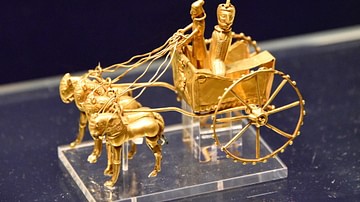
Definition
Oxus Treasure
The Oxus Treasure is a collection of 180 artifacts of precious metal, dated to the Achaemenid Empire (c. 550-330 BCE), which were discovered on the north bank of the Oxus River near the town of Takht-i Sangin in Tajikstan between 1876-1880...
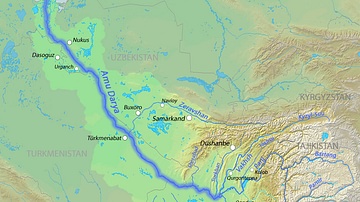
Definition
Oxus
The Oxus is a river, today called Amu Darya in its western part and Wakhsh in its eastern parts, which flows for a length of 2400 km across modern Tajikistan, Afghanistan, Turkmenistan and Uzbekistan into Lake Aral. In Ancient times it crossed...
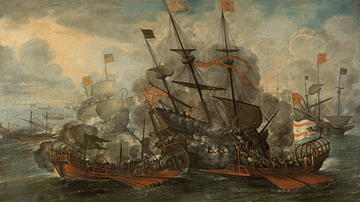
Definition
Spanish Treasure Fleets
From the 16th to 18th centuries, two treasure fleets sailed each year, one to Mexico and the other to Central America, then part of the Spanish Empire. There they collected precious eastern goods and the riches of the Americas, including...

Image
Gold Bowl from the Oxus Treasure
This gold bowl was decorated with pushed-out lobes and lions standing on their hind-legs with their front paws raised. The shape and decoration of the bowl was made by hammering. Part of the Oxus treasure, from Takht-i Kuwad, Tajikistan...

Video
Scythians: Scientific Analysis of the Oxus Treasure
British Museum Scientist Aude Mongiatti shares some of her research on the Oxus treasure, a selection of beautiful gold and silver objects from the 5th and 4th centuries BC. Some of the objects from the Oxus treasure are on display in...
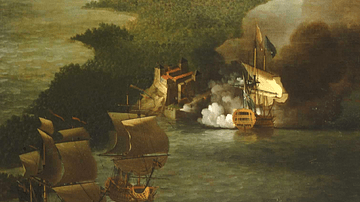
Article
Treasure Ports of the Spanish Main
The treasure ports of the Spanish Main such as Cartagena, Portobelo, Panama, and Veracruz were used to collect the riches the Spanish Empire had extracted from the Americas, ready for transport in the two annual treasure fleets back to Europe...
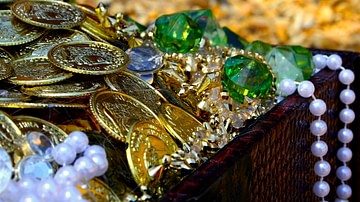
Article
Treasure & Booty in the Golden Age of Piracy
During the Golden Age of Piracy (1690-1730), pirates were first and foremost after gold, silver, and jewels, but if these could not be grabbed, then a ship’s cargo would be taken for resale at a pirate haven. Shared amongst the crew, the...

Image
Oxus River
Map of the Oxus' / Amu Darya's watershed in Central Asia, that drains parts of modern-day Afghanistan, Uzbekistan, Turkmenistan, and Tajikistan into the Aral Sea.
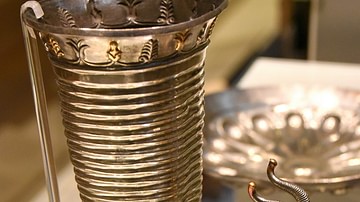
Definition
Ancient Persian Art and Architecture
Persian art and architecture in the present day is associated with the nation of Iran and usually designated as beginning with the Achaemenid Empire (c. 550-330 BCE) but has an even longer history with its origins dating back to before the...
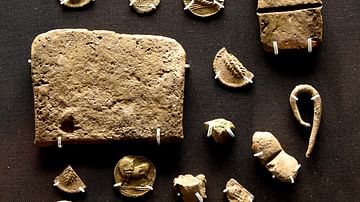
Article
Treasure Hoards in Ancient Literature
Aristophanes wrote in the 5th century BCE about coin hoards in Athens. He joked about the common saying, "No one knows but the birds where I hid my money," which led buffoons in his play to follow birds around with a shovel, hoping to excavate...